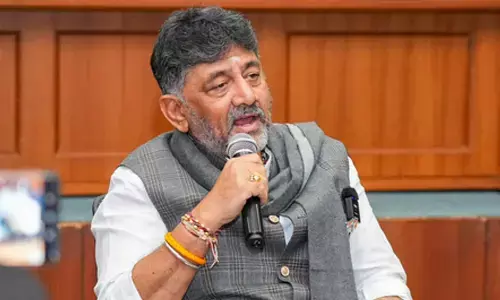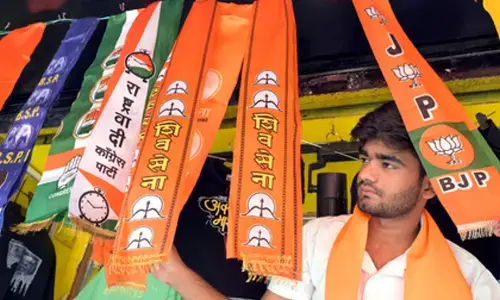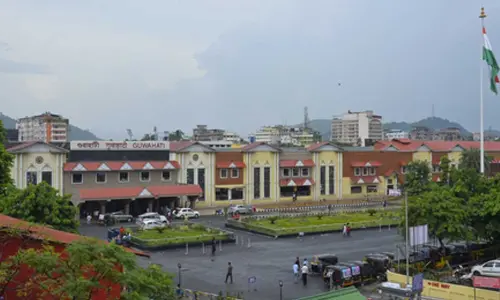Registered bodies in India bound by RTI

The origin, lofty ideals, objective, mission and ethos of the Council for Indian School Certificate Examinations mandates it to be transparent, accountable and answerable.
The origin, lofty ideals, objective, mission and ethos of the Council for Indian School Certificate Examinations mandates it to be transparent, accountable and answerable.
They may not be a government sponsored organisation, but they are public in character, they hold ‘Indian’ title in their name.
They are morally obliged to give information to its employees, students, parents and to any person as they are a ‘society’.
Allahabad High Court in the case of A Pavitra vs UOI & Ors, WPC No 60338/2014 dated 15.12.2014 has held that CISCE is not the public authority.
Shri OP Kejriwal, CIC came to the conclusion that prima facie CISCE was not covered by the definition of a public authority since it was neither funded nor controlled by the government or any other public body.
The CIC advised the respondents to call the appellant to the office and, wherever possible, to open up all the files containing the information the appellant has asked for.
Finally, in case the appellant has to come to the Commission again for a hearing complaining of non-compliance of the Commissions Orders, the CIC ordered that “the appellant may be once again paid to and fro 2 AC train Mumbai-Delhi train fare and Rs 1,000/- for his stay in Delhi.
In case the appellant has to come again, he may purchase the ticket and ask the respondents for a compensation of this amount”. This was upheld by single judge bench of Delhi High Court.
In LPA the division bench set aside the order of DHC and CIC and held: We leave the question of, whether the Council is a public authority or not within the meaning of the Right to Information Act, 2005, open and to be decided in an appropriate case.”
Justice Shivakant Prasad of Calcutta High Court, in Dinesh Sinha vs CISCE, has held that the Council for the Indian School Certificate Examinations (CISCE) does not come within the purview of a public authority under Section 2(h) of the Right to Information Act.
The CISCE is a private, non-governmental board of school education in India and holds the Indian Certificate of Secondary Education (ICSE) Examination for Class 10.
The Council’s origin being established by the University of Cambridge legally with the assistance of the interested Board for Indians by the Societies Registration Act No XXI of 1860 it does not fall within the definition clause of 2(h)(d)(ii) of the RTI Act.
Any person’s right to information
The CISCE is claiming to be a registered society. As per the Section 19 of the Societies Registration Act, 1860, the society is under an obligation to give information to ‘any person’.
Section 19 of the Societies Registration Act, 1860,19. Inspection of documents.—Any person may inspect all documents filed with the Registrar under this Act on payment of a fee of one rupee for each inspection; and any person may require a copy or extract of any document or any part of any document, to be certified by the Registrar, on payment of two annas for every hundred words of such copy or extract; and such certified copy shall be prima facie evidence of the matters therein contained in all legal proceedings whatever.
The objective of this Act is: “An Act for the registration of literary, scientific and charitable societies: Whereas it is expedient the provision should be made for improving the legal condition or societies established for the promotion of literature, science, or the fine arts, or for the diffusion of useful knowledge, the diffusion of political education, or for charitable purposes..”
Registration is the notice
The purpose of registration is giving notice of their existence with a seal of legal approval for their laudable objectives and to tell the people that some socially interested gentlemen are heading the society.
The registration process includes filing of memorandum of association under Section 2, to keep the whole world informed about their names, addresses, and occupations of the governors, council, directors, committee, or other governing body to whom, by the rules of the society, the management of its affairs is entrusted.
They have to file a copy of rules and regulations of the society, certified to be a correct copy by not less than three of the members of the governing body along with the memorandum of association.
A society may not be a public authority under RTI Act, but it is a public body, by virtue of their registration, which means they cannot keep their affairs out of public.
They cannot plead privacy, or refuse to give their addresses etc, if they are the governors of the society. Every person has a right to verify the claims of these society leaders examine their performance and question them.
A registered society cannot claim itself to be aloof or away from the social obligations, it has entrusted to itself by their rules and registration. They have to file annual list of managing body with full details of contacting addresses (Section 4)
As per section 11, any member of the society who shall steal, purloin etc shall be subject to same prosecution and if convicted shall be liable to be punished in like manner as any person not a member would be subject and liable to in respect of the like offence.
That means state can prosecute him on complaint by any person or on its own.
‘Indian’ character
Especially this society is using expression ‘Indian” reflecting its national reach and character. It has claimed in its official website http://cisce.org/: The Council has been so constituted as to secure suitable representation of: Government of India, State governments/Union Territories in which there are Schools affiliated to the Council, the Inter-State Board for Anglo Indian Education, the Association of Indian Universities, the Association of Heads of Anglo-Indian Schools, the Indian Public Schools’ Conference, the Association of Schools for the ISC Examination and members co-opted by the Executive Committee of the Council.
It is offering concessions to children with Special Needs. Such a society is not expected to hide the information pertaining to conditions required for affiliation of schools with CISCE board, or an employee’s salary details and entitlement for DA etc. Section 2(f) in the Right to Information Act, 2005, provides access to information held by private body:
(f) “information” means any material in any form, including records, documents, memos, e mails, opinions, advices, press releases, circulars, orders, logbooks, contracts, reports, papers, samples, models, data material held in any electronic form and information relating to any private body which can be accessed by a public authority under any other law for the time being in force;
Assuming that the CISCE is not public authority, it is not acceptable or believable that CISCE, being a registered society, is not a public body. Even agreeing that it is a private body, still it has an obligation to provide access to information as mandated by the law through Section 2(f) of RTI Act, 2005 and 156 year old RTI provision codified under Section 19 of Societies Registration Act, 1860.
The information sought by the appellant is accessible according to the provisions of Societies Registration Act and hence it is ‘information’ as defined by RTI Act.
Once what was sought was ‘information’ the appellant can approach the Commission seeking the enforcement of that right to information supported by two enactments.
It shall be the duty of Registrar of Societies or his CPIO to explain the Commission if any person is restricting or refusing to provide information so that the Commission can consider whether such person could be the deemed PIO as per RTI Act and be proceeded with penalty provisions of RTI Act.
The CISCE is a public body. It uses the expression “Indian” reflecting its ‘national’ character. It has thousands of schools affiliated all over the country.
Several lakhs of students are connected to it. They are morally and contractually expected to be transparent and provide access to their information.
They should be answerable and accountable. (Based on order in CIC/CC/A/2015/001881-SA, Baal Kishan v PIO, Council for Indian School Certificate Examinations, on 1.11.2016)














